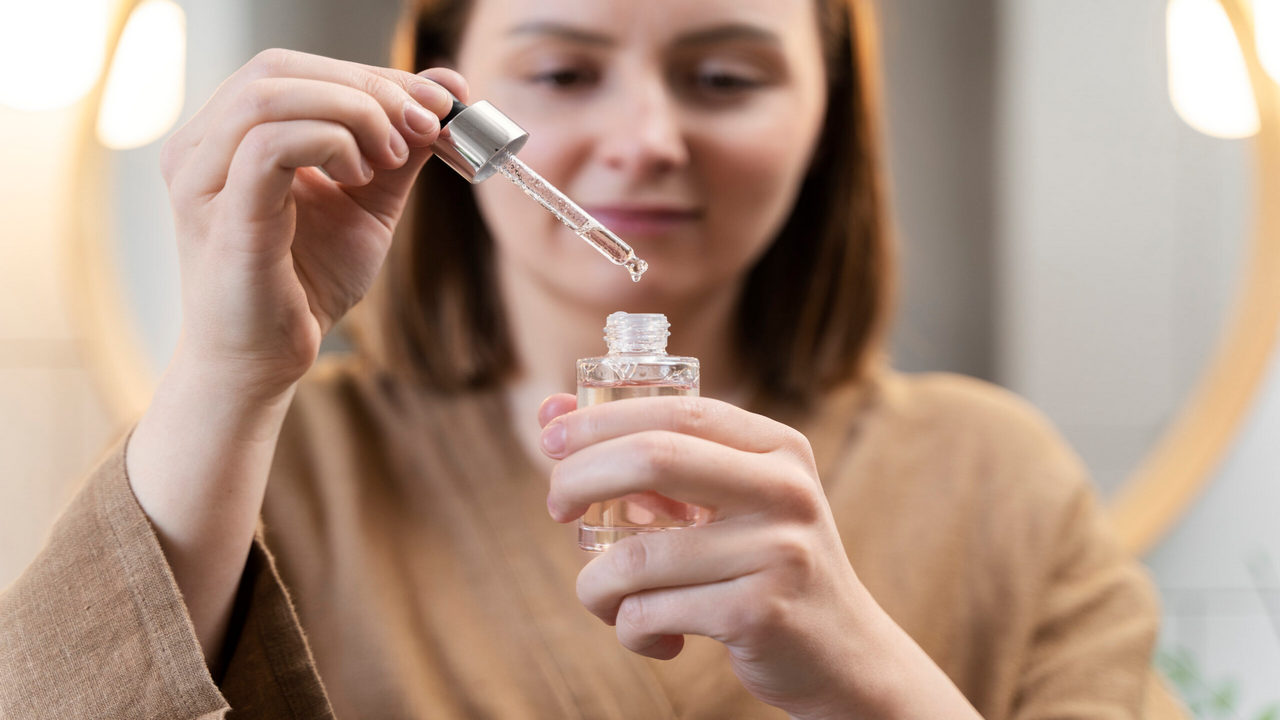Glycolic acid serum is readily becoming the most cult-favorite acid that is secretly transformative in skincare routines around the world.

What Is Glycolic Acid?
Glycolic acid is an alpha hydroxy acid (AHA) that is produced naturally out of sugary cane. It is the most efficient exfoliating AHA and it reaches and penetrates the deepest into the skin at the fastest rate.
Why Is Glycolic Acid Serum So Popular?
Due to its functionality Clear out acne, smoothe away dullness, wrinkles and uneven texture; glycolic acid serum offers a laser focused approach to achieving clear complexion. It is a magic-filled bottle that is effective whether you have skin care experience or you are on your first-time skincare.
How Glycolic Acid Works
simplifies the science. Your skin is designed to naturally shed dead cells however with age or exposure to environmental irritants, in some cases, this process can be slowed. Far more effective is Glycolic acid which acts to dissolve the bond that holds these dead cells together, exposing fresher, younger-looking skin underneath.
Cellular Turnover Explained
Consider what your skin looks like, a factory floor. Old, dead cells are as clutter dragging things down. Glycolic acid moves in like a housekeeping crew, and they scrub the skin to help it renew itself quicker more effectively.
Key Benefits of Glycolic Acid Serum
Fights Acne and Blemishes
It also exfoliates, so it helps clean clogged pores to prevent breakouts and new ones. Gone are the days ofone conjuring of concealer!
Reduces Hyperpigmentation
Blemishes, pigmentation or scars remaining after acne? These imperfections are cleared off using glycolic acid serum regularly to promote a faster cell turnover.
Smooths Fine Lines and Wrinkles
Although this treatment does not involve Botox, it can help reduce the look of wrinkles because of the ability to stimulate the production of collagen, therefore, making your skin look youthful.
Choosing the Right Glycolic Acid Serum
Concentration Levels: What’s Right for You?
- 5% or less – For the newbie or sensitive skin
- 6–10% – Good for the intermediate users
- 10–20% – For the advanced user or someone looking for rapid results (best done under dermatological guidance)
Ingredients to Look for with Glycolic Acid
Coupled with the hydrating or antioxidant rich ingredients, the serum makes it often more efficacious.
Hyaluronic Acid
Restores the drying action of glycolic acid, leaving the skin hydrated.
Niacinamide
It is a powerhouse when it comes to minimizing redness and color balancing the skin. And, it is good on sensitive skin.
Vitamin C
When used alternately (not as a layer) with glycolic acid, it offers brighter skin and helps to lighten dark spots quicker.
Best Glycolic Acid Serum Recommendations
- The Ordinary Glycolic Acid 7% Toning Solution – Budget-friendly, highly effective
- Pixi Glow Tonic – A cult classic
- Drunk Elephant T.L.C. Framboos Glycolic Night Serum – Luxury option with added BHA
- L’Oréal Paris Revitalift Glycolic Acid Serum is a drugstore favorite that comes with dermatologist approval.
How to Use Glycolic Acid Serum Effectively
Step-by-Step Usage Guide
- Wash your face with a mild face wash
- Pat dry-only -no rubbing
- Apply glycolic acid serum a few drops
- Wait 5-10 minutes before using other products
- Moisturize
- Always use sunscreen during the mornings
When to Apply
Evening is best- glycolic acid may make your skin more exposed to sun rays.
How Often Should You Use It?
Take 2-3 times a week. Once your skin is used to it, you can use it every day, provided the concentration of the product in question is high enough.
Combining Glycolic Acid with Other Skincare Products
Especially do not use it with:
- Retinol
- Vitamin C (in combination)
- Benzoyl Peroxide
These combination may be irritating to your skin unless you space them out over your routine.
Common Myths About Glycolic Acid Serum
Myth 1: Glycolic Acid Makes Your Skin Thinner
False! It even makes skin thicker and healthier as it encourages collagen.
Myth 2: You Can’t Use Glycolic Acid in Summer
You can – be religious about sunscreen use SPF 30 or more is not negotiable.
Myth 3: It’s Not for Sensitive Skin
Glycolic acid serum can be used at lower concentrations, and actually does not harm sensitive skin types, as long as they patch test it first.
Safety, Side Effects & Patch Testing
Who Should Avoid It?
- Those with eczema or rosacea
- Any individual on heavy acne drugs such as Accutane
- Pregnant or breastfeeding women (consult your physician first)
Signs You’re Overdoing It
- Redness
- Peeling
- Burning sensation
Reduce the use and moisturize your skin in case this occurs.
How to Do a Proper Patch Test
Rub on a minuscule quantity behind your ear or inside the forearm. Wait 24 hours. If your skin does not react with irritation, you are good to go!
Conclusion
When you are in-need of taking your skincare to the next level, use a glycolic acid serum as the secret to your success. It removes excess skin, brightens, and smoothens up your skin with noticeable results – making it a very important part of any skincare routine. It may take time, but just remember, go slow, match your jewels and never forego sunscreen. You skin will appreciate this!
FAQs
Mayank Rawat
Certified Skincare Consultant and passionate researcher, I specialize in exploring skincare ingredients and haircare actives. Always eager to stay ahead of trends, I continuously update my knowledge to bring science-backed solutions. Dedicated to helping others achieve healthy skin and hair through expertise and innovation.